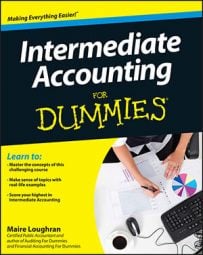It’s a fact of life in the business fast lane that companies don’t always have more revenue than expenses every year. It’s not necessarily a bad thing, and it can happen for many reasons, including moving the company facilities or expanding the company into new markets.
Operating losses are a tough pill to swallow. Pharmaceutical companies can show enormous losses for years while developing new drug products that become enormously profitable.
Broadly speaking, a net operating loss (NOL) occurs when the company has more deductions than revenue on the tax return. Of course, as with most tax-related subjects, there’s a bit more to it than that.
For financial accounting, an NOL is an occurrence that investors and lenders note through review of the financial statements — but there’s no special form for NOLs as there is for tax accounting.
However, a company has to disclose the facts and circumstances surrounding an NOL so the users of the financial statements understand what is going on.
Depending on the facts and circumstances surrounding the NOL, both sets of users may not be dismayed at all. For example, many drug companies post net operating losses while doing research to develop new drugs that will eventually be extraordinarily profitable.
How can an event such as an NOL be an advantage for a company? Here’s the skinny on that: An NOL reduces the amount of tax the company paid on earnings in the past or has to pay going forward into the future.
Under the IRC, a business usually has the option of carrying the NOL back to past years, to get a refund against taxes already paid in past years. If a company chooses to, it can forgo the carryback period and apply the NOL to tax returns not yet filed.
The IRC rules that govern carrying the NOL forward or backward are extensive and aren’t covered in your financial accounting class.

